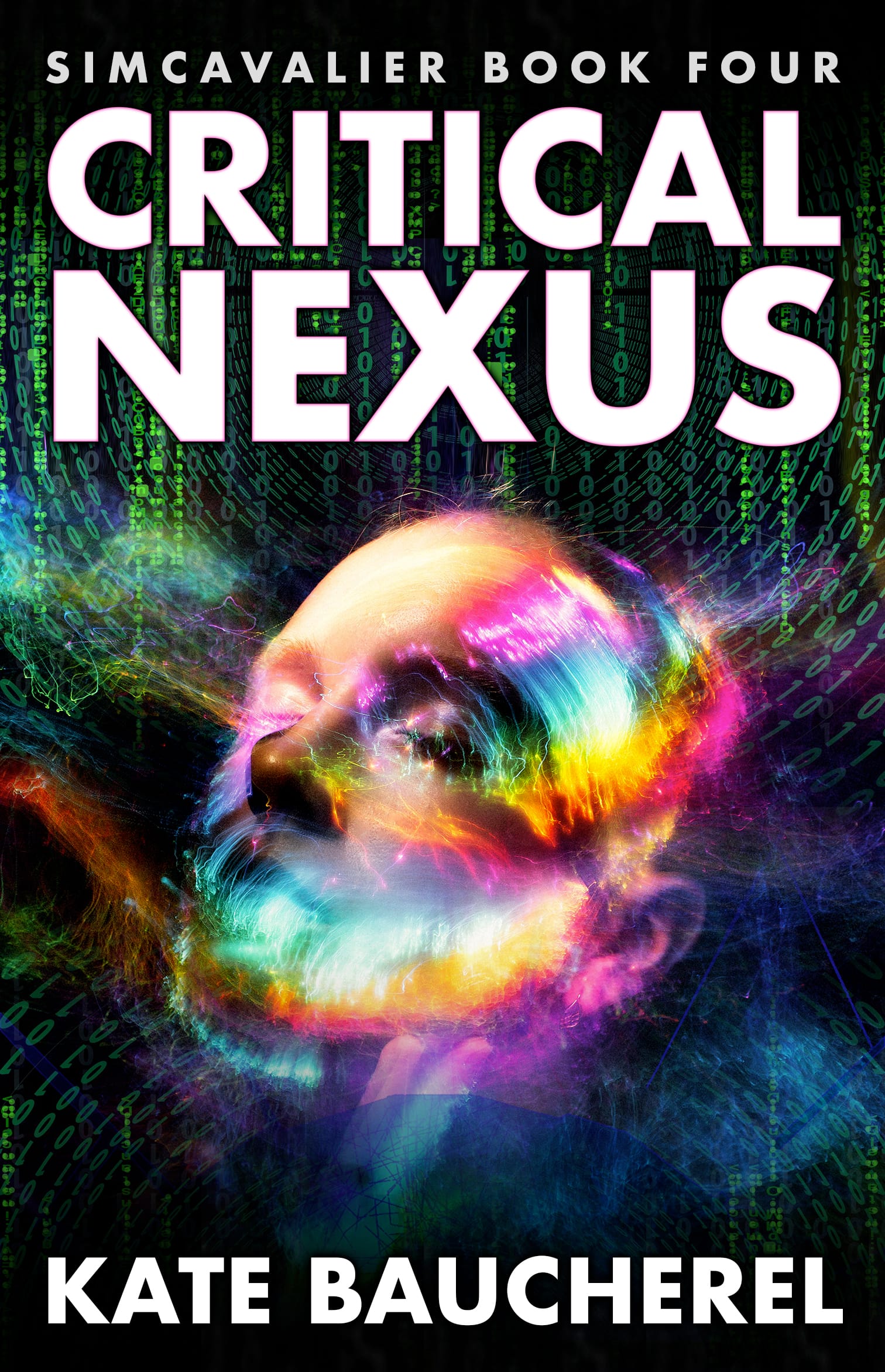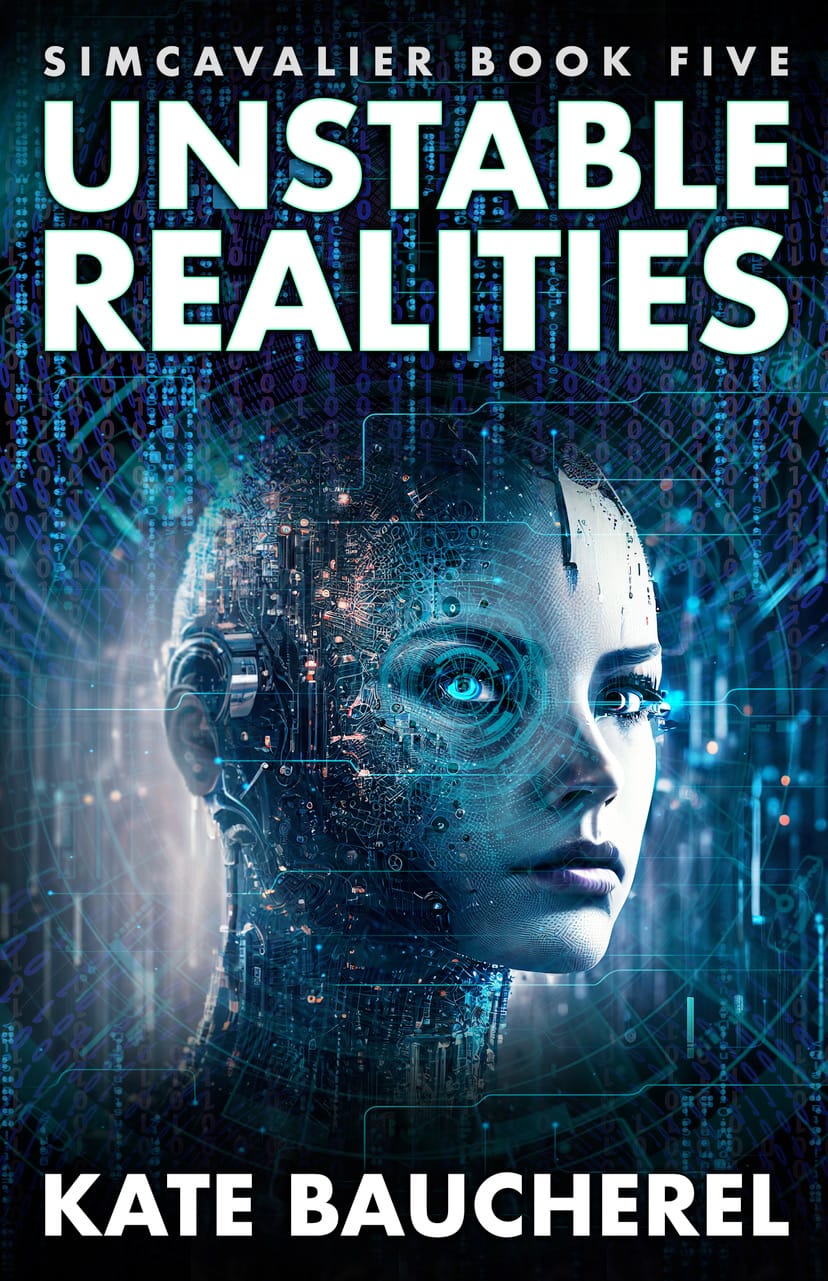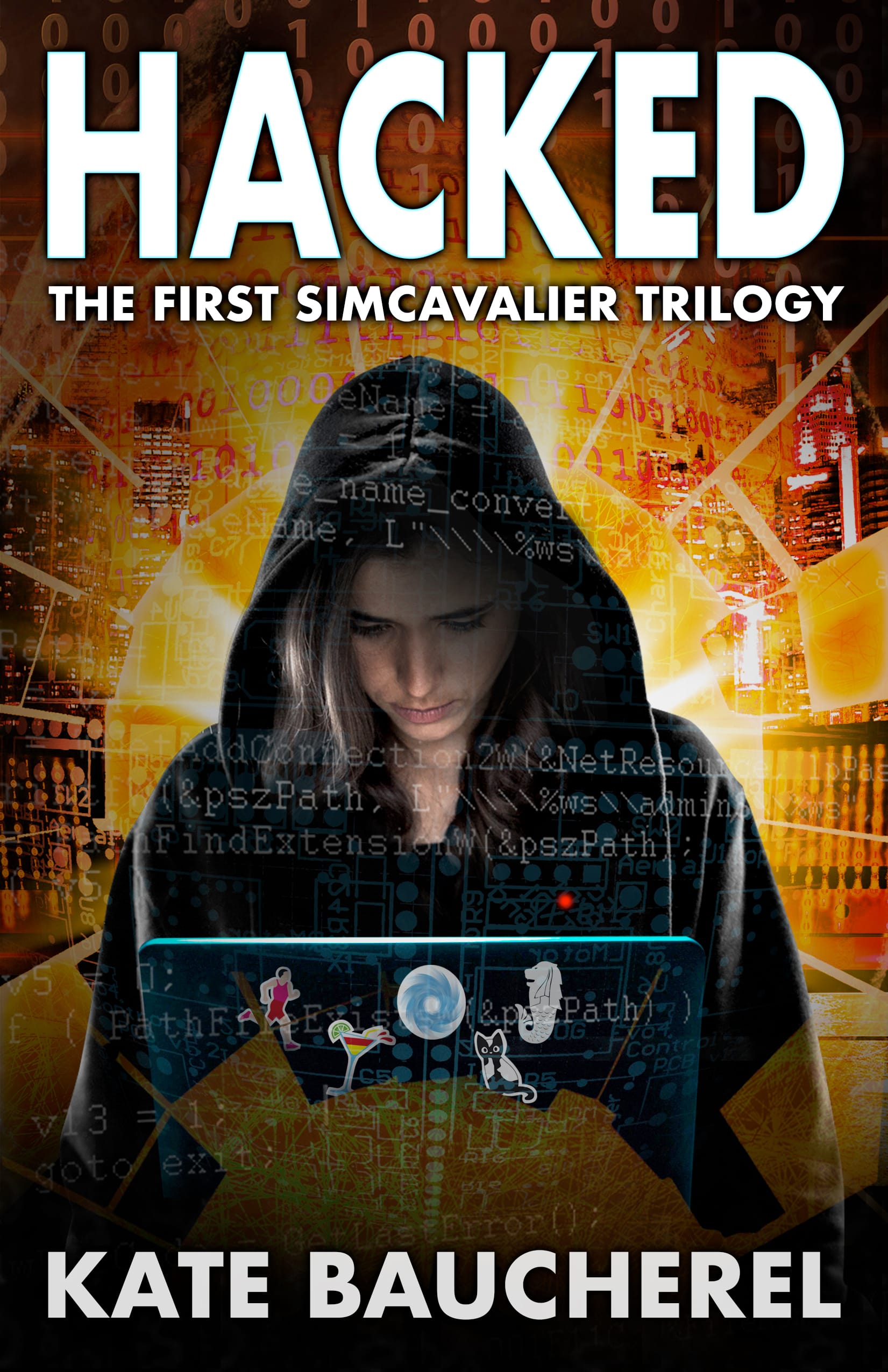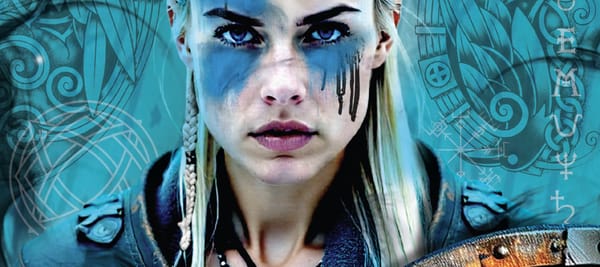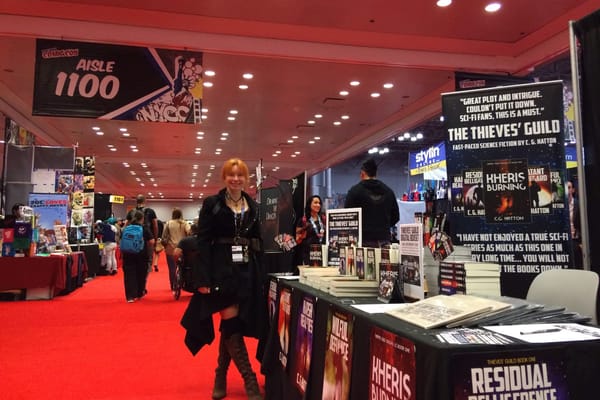"In twenty years time? ...most interesting will be behavioural and societal change as avatars and fake humans – good and bad – slide into our everyday lives."
Author Q&A: we catch up with Kate Baucherel and take a sneaky peak into the future...

Kate Baucherel is not only the author of the SimCavalier near future cybercrime thrillers, but she’s a real life expert on emerging tech, blockchain and cyber-security.
She lives on the bleeding edge of technology and pushes that envelope even further when she writes her fiction. She’s also a Harvey regular where her stories flit between SimCavalier shorts and out there sci-fi featuring her young avian adventurer, Finch.
We catch up with Kate as she comes back to the UK after another fab SXSW in Texas.
Q: Kate, SXSW… how was it?
A: SXSW was monstrously good as ever. I came away with sixty pages of notes from eighteen amazing sessions on everything from AI and realities to Marvel’s digital comics and collectibles. I hosted the annual Author Meetup and spoke on my own panel with John du pre Gauntt of Culture and Code and Natalie Monbiot of Hour One about the importance of storytelling and storytellers in a changing world. I got to see some of my favourite bands and plenty of new ones on tiny acoustic stages. I dived into immersive worlds and spent some time with the creators in the Korean metaverse who build AI avatars such as influencer Rui Li. I also managed to attend the world premiere of the 3 Body Problem, and met a true scifi legend, Kyle MacLachlan.
Q: What are you working on now and what’s the next book we can expect?
A: I’ve been distracted from the SimCavalier and Finch and Harvey by a couple of big projects that are due for release in the next few weeks. I’ve written the flagship title on blockchain and crypto for the British Computer Society (Getting Started with Cryptocurrency: An introduction to digital assets and blockchain) which is in the final weeks of production (out on 17th April). I also contributed to the latest Cybersalon anthology, ‘All Tomorrow’s Futures’. Once the dust has settled from those, I need to get my head around where Cameron and Tenuk are going for the sixth SimCavalier book, Quantum Breach, and spend a little more time following Finch around the galaxy.
Q: How tough is it to stay ahead of technology as it advances as fast as it is currently?
A: It’s incredibly hard. I dropped a scenario into the short story for All Tomorrow’s Futures that involved immersive classes, and then a human rights law lecturer I met at SXSW mentioned she’d taught an entire class in VR on a battlefield just the previous week. As soon as you think you’re doing something new, the real thing springs up from the grass. In Unstable Realities I imagined a scenario for death and memorial in the metaverse, only to meet someone who is researching this exact topic for his PhD (he bought the book).
Q: If you could time-travel back to anywhen, when and where in the world would you go and who would you want to talk to?
A: That’s really hard. I think I’d like to spend some time with Iain Banks, having not met him before his untimely passing, and just tap into the magnificent breadth and scope of his imagination. I’d be careful not to tell him about Musk, though.
Q: You made some pretty spooky predictions in your early fiction… what do you think is going to be the most significant technological advancement in the next year? The next five years? The next twenty years?
A: AI in all its forms is going to change our lives in extraordinary ways in the next five years. It’s already happening, and most of it is positive. We can’t avoid change. The only control we have is over our response to it, and we have to grab the opportunities is offers. Twenty years? There are predictable things like quantum computing, breaking bits of existing encryption and processing those algorithms way faster than all the chips and chiplets we have now. But most interesting will be behavioural and societal change as avatars and fake humans – good and bad – slide into our everyday lives.
Q: Where do you write and what does your perfect writing spot look like? Does it change when you’re writing fiction as opposed to your non-fiction?
A: Non-fiction is mainly in front of two big screens at my desk with loads of research tabs open on one screen and the draft taking shape on the other. Fiction varies according to the stage of writing – am I mapping out ideas and character journeys or just letting the ideas flow? Instinctive and unexpected creation in both cases needs a laptop and an environment where I won’t be disturbed. Last year I wrote a huge chunk of Unstable Realities flying across the Atlantic to SXSW, interrupted only by flight catering.
Q: Is there a novel you’d love to write if you had infinite time available?
A: I would love to just pull out all the stops and write a whole different series with a new setting, whether present day straight fiction or urban horror, or far future to stretch the imagination.
Q: What short story ideas are you working on for future Harveys, and which basket excites you the most?
A: There are endless ideas slewing through my head and they are mainly dystopian or just plain weird. I need to be in a certain frame of mind to get them to come out and show themselves in their full glory, but there’ll be something coming your way.
Q: What advice would you give anyone starting out on their writing and publishing adventure?
A: You can’t edit a blank page. Write something. It may be terrible, but the thing you write the next day will be less terrible, and before you know it you’ll have a story growing that you can’t stop.
